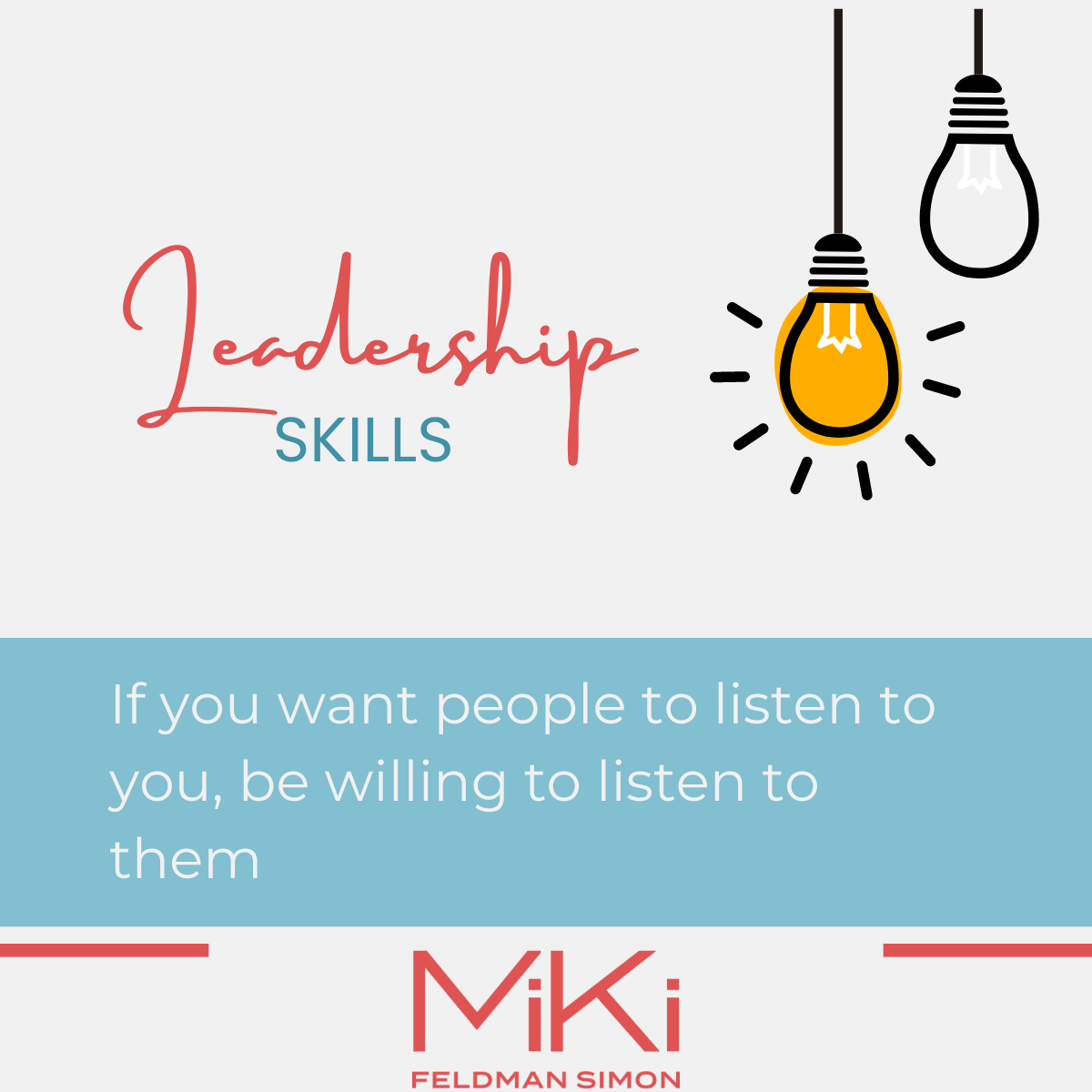All people want three things:
- To be listened to
- To be taken seriously
- To know you have a genuine interest in what they’re saying
How much time do you spend listening versus waiting to talk?
Active listening is a communication skill that involves giving your full attention—no checking your email, phone, or messages on your watch. You are not just listening to respond; you listen to understand and retain the message being conveyed by the speaker. It also means not interrupting the speaker. Are you listening?
When you are talking, you are not listening.
Listening is an important skill I work on with many of my coaching clients.
Yesterday, on Marshall Goldsmith’s Stakeholder Centered Coaching community call, we discussed the important role of listening, both as a coach and for all leaders.
Listening is one of the most underutilized leadership skills.
Really listening to others helps improve communication, build consensus, and resolve conflicts. Good listening skills also foster trust, cooperation, and teamwork, making it an essential aspect of personal and professional life.
When you listen actively, you pick up verbal and non-verbal cues, gain deeper insight into the thoughts and feelings of others, and respond in a way that is supportive and appropriate.
Are you utilizing this important leadership skill?
Here are four tips you can start practicing now:
- Be present. Are you checking your phone, email, or thinking of something else? Pause to note how present you are and listen actively. Take a break or reschedule the meeting if you are not able to be fully present.
- Pay attention to how much you speak. Over the next few days, track how much time you actually talk in meetings.
- Do not interrupt the person speaking. Take a deep breath and pause. Write down the points you want to mention and let them finish speaking.
- Instead of talking, ask questions. Ask open-ended questions. This promotes active listening and shows interest and respect for the person you are communicating with. It can lead to deeper and more meaningful conversations.
